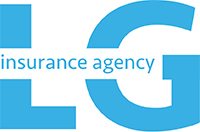When it comes to protecting your proprietary information, and taking the necessary steps to secure the various streams of data your company handles, as well as taking steps to protect your own personal information, you may have come across some conflicting or confusing messages. With the myriad ways we communicate and convey personal and private data across platforms, especially in an increasingly online world, with more businesses doing the bulk of their work online or remotely than ever before, proper cybersecurity measures, including cyber insurance, is vital. While most of us are aware that taking steps to protect ourselves, like using two-factor authentication and changing passwords frequently are important, many professionals and businesses miss the opportunity to further protect their proprietary information effectively and prevent major issues down the line.
So how do you best protect yourself and your clients, and secure their proprietary information? What steps are necessary to ensure that your data is safe and protected, and in the event of a breach, the required steps are in place to mitigate risks?
The key components of data and proprietary information security start with you. Take the proper precautions when sending and receiving data that contains private information- use a secure email account, appropriate encryptions, secure portals, password protections, two-step verifications, and password-protected PDFs rather than simply sending documents with important proprietary information via email casually. Think carefully about any private or identifying information you include in any emails to and from clients- email accounts are easily hacked- especially accounts associated with some older websites, so make sure you’re using a secure email account and server for additional protection.
Businesses and their clients have loads of personal identifiable information that they exchange and keep track of at any given time. Health data, medical information, usernames, passwords, dates of birth, social security numbers, addresses, phone numbers, account numbers, credit card data- the list goes on and on. With all of this data floating around, cyber criminals are extremely motivated to hack businesses and their websites to gain access to this data. Even the most innocuous details, like home addresses, when coupled with something like a social security number that’s been hacked, can become a major security issue. In the event of a breach, when a business has had data stolen that includes personal data or proprietary information, that business is responsible by law to notify any and all clients that may be made vulnerable as a result of that breach. Not only that, but the business is additionally required to provide victims of the security breach with 12 months of credit monitoring along with notifying them about the issue. Costs associated with these kinds of scenarios can end up being astronomical, depending on the severity of the breach, the types of data stolen, and the potential fallout.
For these reasons, as a business owner, you’ll need to take every necessary precaution. Your cyber security measures are vital- you and your employees will need to make certain you’re doing everything in your power to avoid security breaches and avoid the need to file insurance claims as a result. Even the best cyber insurance policies require a deductible payment, and you’ll need to verify that all precautionary measures were in place on your end. For example, do you have a firewall? Are you making use of two-step verification? Are you encrypting all files that contain private information? Is your desktop encrypted at rest? These questions are key when the worst has happened and you’re in a position to file a claim. Clients also expect that these types of security measures are in place, that their data is safe with you. Ideally you are never in a place where a breach has occurred- and by taking every security step possible, you’ll hopefully avoid an expensive and frustrating problem.
It’s prudent, and good business practice, to make sure that all of the proper security measures have been put in place. While most service providers and business professionals have some idea of what they need to do to protect their business and their clients, sometimes the wisest thing to do is seek out a tech specialist to make certain that you’re not missing anything. Small-business cyber and tech companies like Two River Computer or Propulsion Technologies, among others, can help you ascertain that your cyber security measures are safe, effective, and secure.
At the end of the day, the internet plays an integral role in modern business functionality- and a large part of that is the transfer and storage of proprietary information between businesses and their clients. As a result, there are a number of risk points- between social media platforms, online banking or payment systems, employee or client personal data- all of these present a risk to a business, employee, or client in the event that it becomes compromised. Cyber insurance policies are an additional line of defense in dealing with cyber security risks and protecting proprietary information. When deciding to take the vital step of protecting your business with a cyber insurance policy, talking to an insurance professional will help you to ascertain that you’ve taken all of the required precautionary measures before you purchase the policy. The application for a cyber insurance policy will act as a sort of “inspection,” much like the home inspection prior to the purchase of a homeowners policy, to determine whether you’ve taken the needed steps- like standard security measures discussed above. Insurance professionals can walk you through the process and help guide you to the right course, and make certain you’re doing everything needed to effectively protect the privacy of your business’ and clients’ proprietary information.


